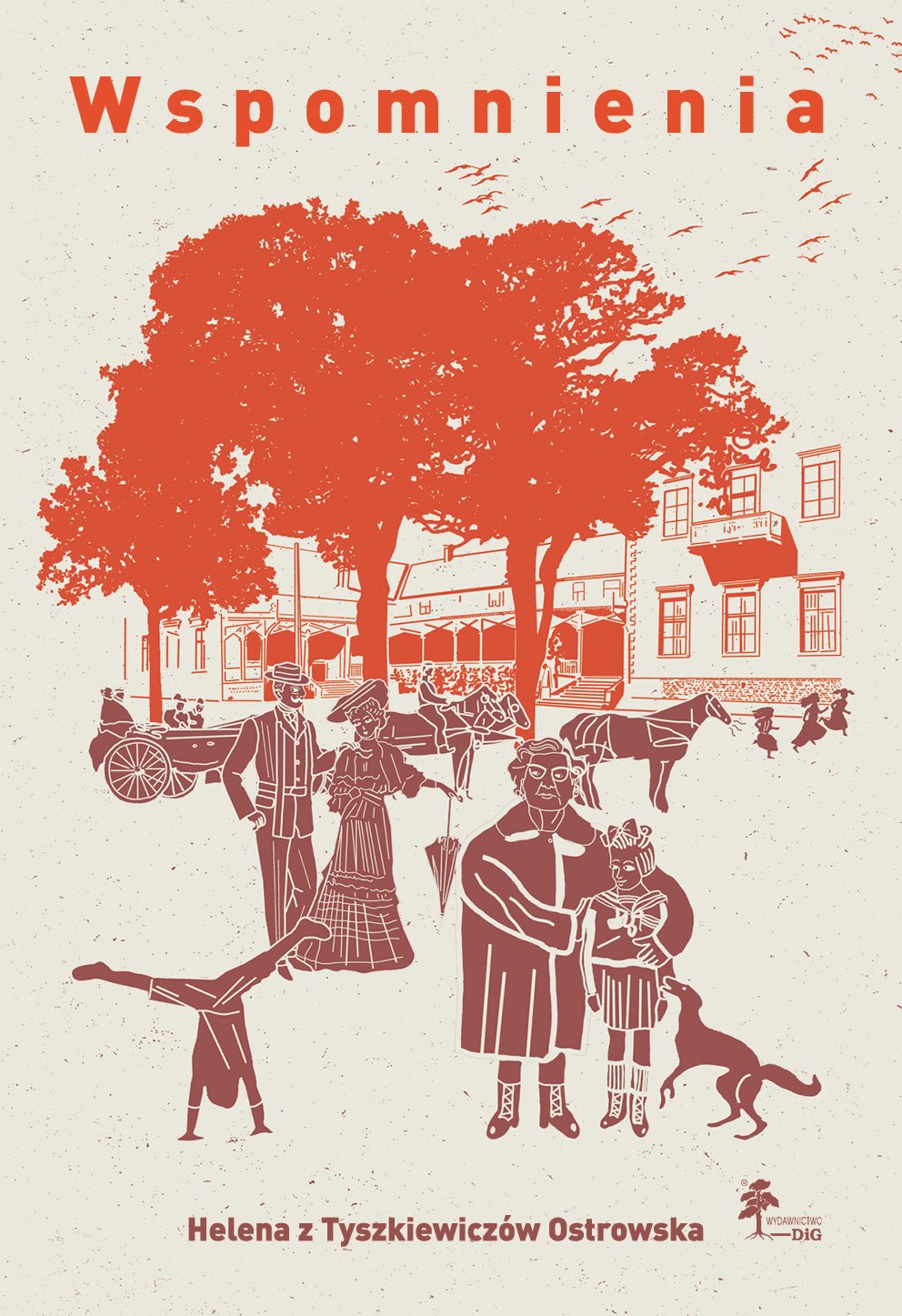PUBLICATIONS
The Korczew Palace Foundation supports publishing initiatives related to Korczew and its surroundings. One of the main tasks of the Foundation is to explore and popularise knowledge of the history of our region. We see our publishing projects above all as making the heritage of our small homeland accessible to a wider audience.
FAMILY ARCHIVES
The family archives of the Ostrowski-Harris family are the source of most of the publications. We strive to make as much of the collection as possible – both texts and photos – available to the public.
Below we present an overview of publications from recent years. All items are available for purchase in the souvenir shop of Korczew Palace and the Palace Forge guesthouse and hotel Orders can also be placed by e-mail at: agnieszka.skrobacz@korczew.com.

MY HOUSE ['MÓJ DOM'] – RENATA OSTROWSKA
For her – a home. For others – a ruin. After returning to the devastated Korczew Palace where she spent her childhood and youth, Renata Ostrowska recalls happier times. She talks about her family, who lived in Korczew for generations, and about all those for whom the palace was a home. She recalls the tragedy of the war, emigration and her return after years. She hopes that this return will be the beginning of restoration.
Renata Ostrowska – journalist, long-time presenter of the Polish section of BBC radio and sister of the Order of the Knights of Malta. She spent the first twenty years of her life in Korczew Palace and Warsaw. At the beginning of the Second World War, she was a nurse at the Maltese Hospital in Warsaw, and then an activist for the emigration community in England. She returned to Korczew in the early 1990s to rebuild her family home with her sister Beata.

II Edition 2019, I edition 1998. The book was published by the Korczew Palace Foundation in cooperation with the publishing house Od Deski Do Deski.
THE LADY OF KORCZEW [‘PANI NA KORCZEWIE’] – DOCUMENTARY FILM
The documentary film 'The Lady of Korczew' tells the life story of Beata Ostrowska-Harris, who returned to Poland after more than fifty years abroad to rebuild the destroyed Korczew Palace.
The documentary shows the main character’s life against the background of historic events. It depicts her childhood in Korczew, escape from the country in the first days of the war with the convoy escorting the national treasure, her wild youth in London in the 50s, and quiet life as an émigré. Beata, along with her sister and English husband, abandons this comfort to return to Poland in 1989. Thrown into the alien reality of the period of the transition away from communism, she raises her family home from ruins and finds her place in life.
GREAT DOCUMENTARY
'This short – too short – film is an attempt to create a portrait of an extraordinary person. The simplicity, strength and charisma of Mrs Beata Ostrowska-Harris would require the pen of Norwid himself. I – a neighbour and admirer of this place and its hostess – only spread my hands with admiration.'
Daniel Olbrychski
2018, documentary, 57 minutes, dir. Sławomir Rogowski, DOP Kacper Lisowski, prod. Iwona Harris / Lollipop Films, DVD publisher: the Korczew Palace Foundation.

More information about the film:
http://lollipopfilms.pl/pani-na-korczewie
Available with English subtitles.
MEMOIRS ['WSPOMNIENIA'] – HELENA OSTROWSKA NÉE TYSZKIEWICZ
In her memoirs written abroad, Helena Ostrowska thinks back to her childhood in Lithuania. The memoirs contain an appendix about the author's experiences in Korczew during the First World War. Introduction and editing: dr hab. Sławomir Górzyński and prof. Jerzy Szczepański.
From everyday lessons and meals to the unusual characters in the household and her parents’ ambivalent attitude towards the Russian authorities, Helena Ostrowska, née Tyszkiewicz, presents a colourful portrait of family and social life in a multicultural corner of Lithuania. Time is measured by subsequent winters spent in Kretinga in Samogitia and summers in Palanga by the Baltic, which thanks to the hospitality of the Tyszkiewicz family is gradually turning into a sea resort. Writing as an émigré from the perspective of time, the author draws a somewhat idealized but always good-humoured and tender picture of realities, which 'even at that time differed from the average living conditions of rich landed gentry of the late nineteenth century'.
'Women's diaries and memoirs are becoming (...) an excellent source for research on the place and role of women in society in the nineteenth and twentieth centuries (...). Such a role should also be attributed to the memoir by Helena Ostrowska née Tyszkiewicz from Samogitia.
prof. Lidia Michalska-Bracha

2022, DiG publishing house (http://dig.pl/) and Edition La Rama. The edition is co-financed by the Lanckoroński Foundation (https://fundacjalanckoronskich.org/) in cooperation with the Korczew Palace Foundation. Cover design: Marta Ignerska.




